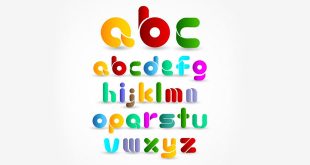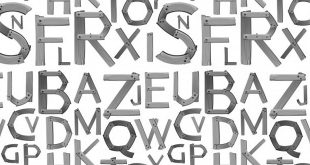Most Misspelled Words
Causes of Misspelling
- Mispronounced Words – One of the most common causes for misspelling is the misuse of phonetic sounds. For instance, jewellery (British) is commonly pronounced as ‘joolry’. The same way, realize can be twisted to sound like ‘relize’. Environment pronounced as ‘envirement’ is another common mistake. Words derived from other languages such as French, as in the case of rendezvous, can also cause confusion.
- Homophones – Differently spelled words with same pronunciation but different meanings are called homophones. Take as an example, ‘read’. This word can be used as all tenses of the verb, ‘to read’. Its homophones are reed (a plant) and red (the colour). Other errors can come in the following words: loose (lose), right (rite), weather (whether), principal (principle), rime (rhyme) etc.
- Proper Nouns – Most proper nouns are spelled differently from the actual word itself. John Ballance (balance), Evelyn Waugh (war) and George Marshall (marshal) etc. Here, it is important to note that no particular spelling is right or wrong as names can vary indefinitely. English language allows multiple pronunciations for proper nouns.
- Concatenation – Up to (upto), in fact (infact), all right (alright), in case (incase), a while (awhile), a lot (alot) and all be it (albeit) are all examples of words that can be misspelled. Concatenation is a computer program that joins two characters end-to-end. Some of the above mentioned words have been included in the dictionary, while the others haven’t as yet.
- Apostrophes – Words using apostrophes can drastically change the meaning of the text itself. Take for example: ‘its’ and ‘it’s’. Both these words signify two completely different meaning; while the latter is an abbreviated version of ‘it is’, the former indicates possession and ownership. Mistakes are also made in the singular and plural possessive forms such as books titles and book’s titles. Doesn’t (or does not) can be misspelled and written as does’nt.
- British vs. American – The biggest debate of the English language lies in the British vs. American spellings. Although, most English-speaking countries follow British English, even the American way of spelling is accepted in some parts. It can be seen that the Americans almost always spell according to the phonetic sound that the word produces. There are numerous examples of these, starting from American color and British colour to others like program (programme), center (centre), practice (practise), analyze (analyse), fetus (foetus) and so on.
Other Common Examples
| Incorrect Spelling | Correct Spelling |
| Priviledge | Privilege |
| Usualy | Usually |
| Existance | Existence |
| Carribean | Caribbean |
| Alchohol | Alcohol |
| Potatos | Potatoes |
| Refered | Referred |
| They’re | Their |
| Untill | Until |
| Vehical | Vehicle |
| Independant | Independent |
| Wellfare | Welfare |
| Absense | Absence |
| You’re | Your |
| Recieve | Receive |
| Guarentee | Guarantee |
| Rasberry | Amateur |
| Embarrasment | Embarrassment |
| Firy | Fiery |
| Lisence | License |
| Vaccum | Vacuum |
| Wierd | Weird |
| Vegatarian | Vegetarian |
| Underate | Underrate |
| Twelth | Twelfth |
| Commitee | Committee |
| Que | Queue |
| Scisors | Scissors |
| Labouratory | Laboratory |
| Guidence | Guidance |
| Ocassion | Occasion |
| Heros | Heroes |
| Vigilent | Vigilant |
| Dumbell | Dumbbell |
| Goverment | Government |
| Truely | Truly |
| Artic | Arctic |
| Concensus | Consensus |
| Harrass | Harass |
| Procede | Proceed |
| Mischevious | Mischievous |
| Discribe | Judgment |
| Occurence | Occurrence |
| Exausted | Exhausted |
| Accomodate | Accommodate |
| Drunkeness | Drunkenness |
| Brocolli | Broccoli |
| Grammer | Grammar |
| Innoculate | Inoculate |
| Manuver | Maneuver |
| Possesion | Possession |
| Noticable | Noticeable |
| Maintainence | Maintenance |
| Cooly | Coolly |
| Aquire | Acquire |
| Equiped | Equipped |
Believe it or not, commonly mispelled… oops, misspelled words have become increasingly infamous owing to the use of ‘autocorrect’ and ‘auto spell-checks’ on smart-phones and computer software. It is important to understand that the use of English, an already difficult language, would become even more confusing for generations to come. Hope the errors mentioned in the article above has been helpful to you!
 Class Notes NCERT Solutions for CBSE Students
Class Notes NCERT Solutions for CBSE Students


